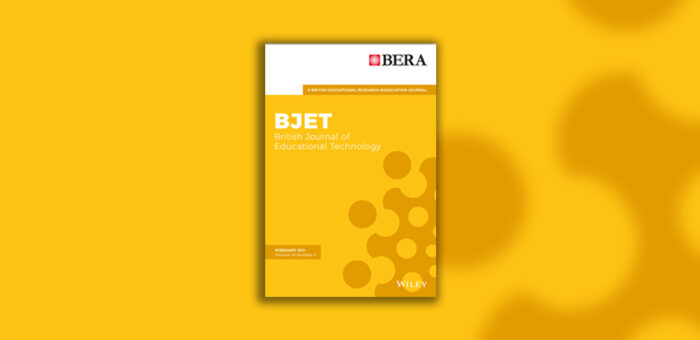
New CfP: Multimodal and Immersive Systems for Skills Development and Education (BJET)
Call for Papers: Multimodal and Immersive Systems for Skills Development and Education Guest editor(s): Daniele Di Mitri, DIPF, Germany Bibeg Limbu, TU Delft, The Netherlands Jan Schneider, DIPF, Germany Deniz Iren, Open University, The Netherlands Michail Giannakos, NTNU, Norway Daniel Spikol, University of Copenhagen, Denmark Roland Klemke, Open University, The Netherlands Rationale for publications During the last decade, we have seen an enormous penetration of multimodal and immersive systems such as virtual, augmented reality and motion-based systems. Such systems, along with rapidly evolving technological affordances (e.g., multimodal interaction, tactile feedback) powered by Artificial Intelligence (AI) and sensors, are attempting to redefine how we interact and learn with technology. This attempt has long-term implications for human-computer interaction and technology-enhanced learning, enabling new forms of personalised, contextual, and deliberate practice of skills…
